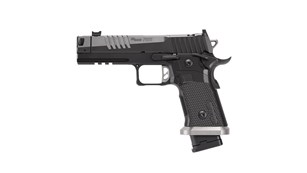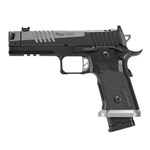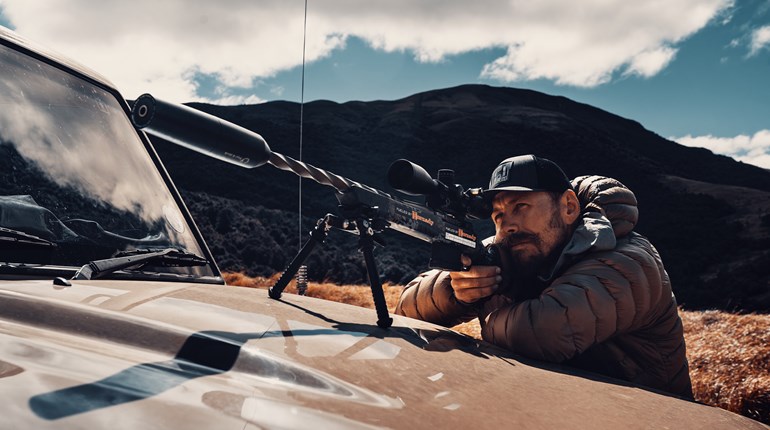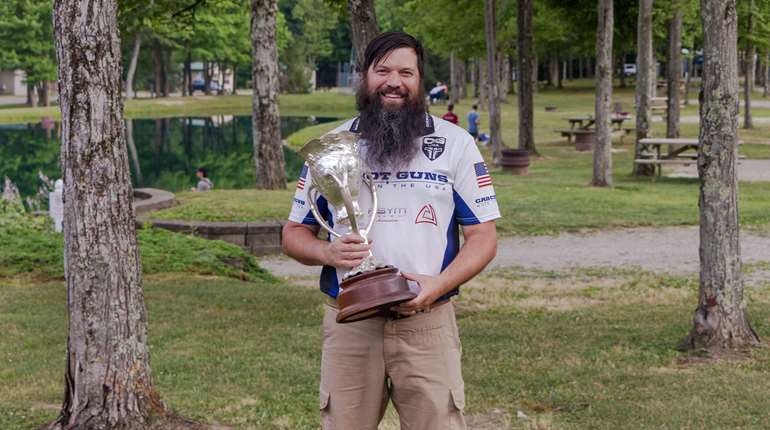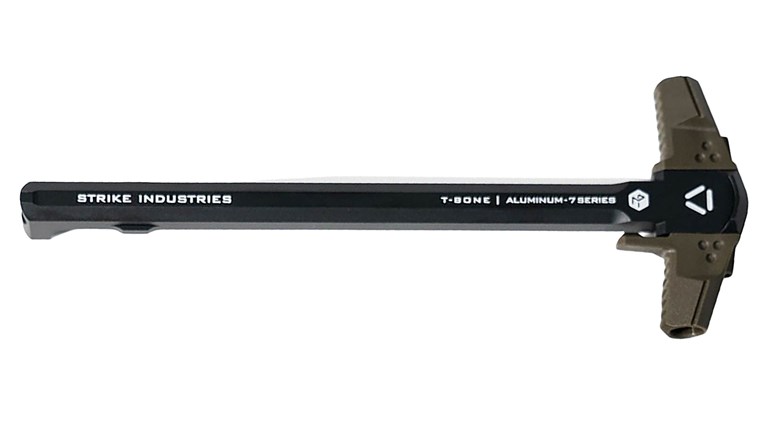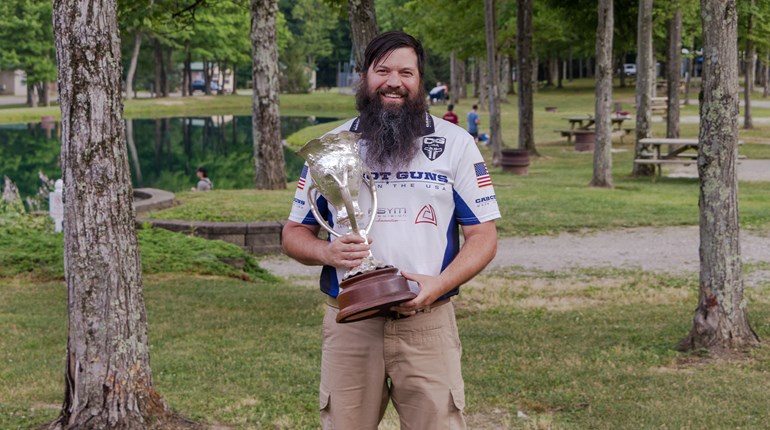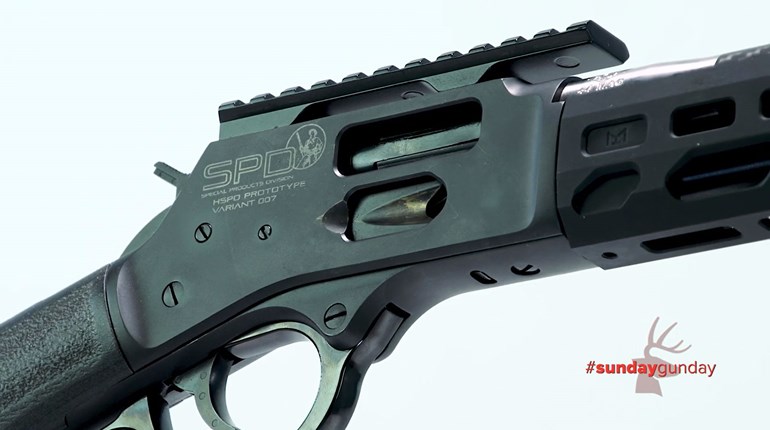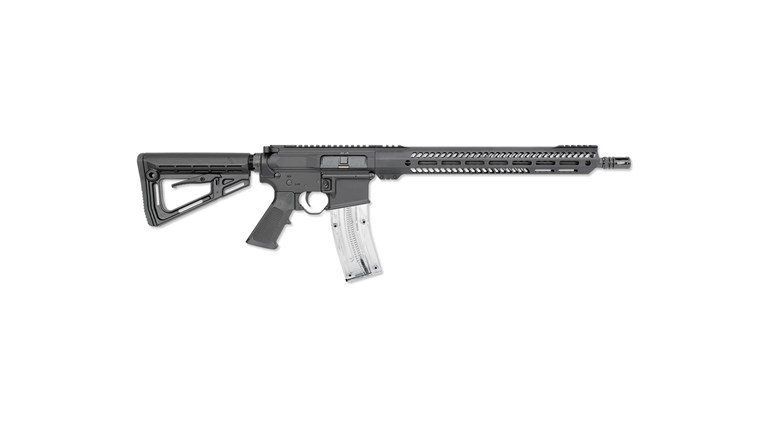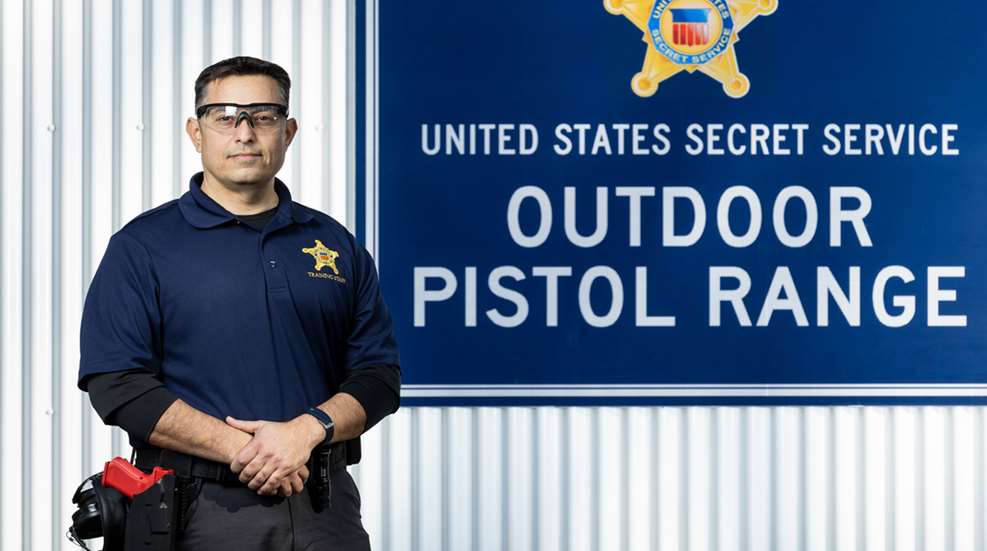
A 9/11 Veteran, U.S. Army Marksmanship Unit Instructor and Secret Service Instructor, Ken Rose was interviewed in the March/April 2023 issue of the USPSA’s magazine. Read the interview below.
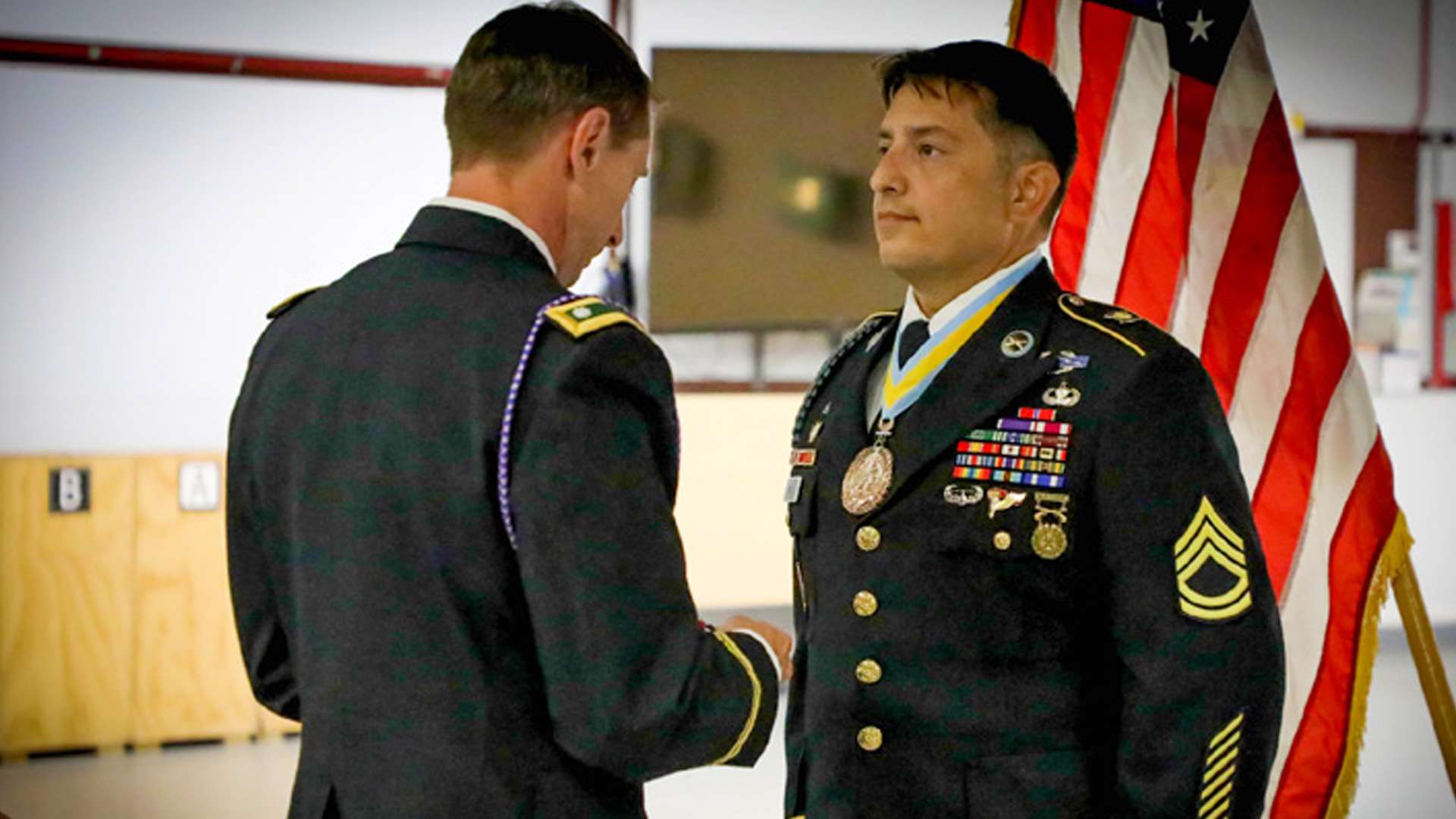
What do you enjoy most about working for the Secret Service?
When it came time for me to retire from the military, I knew that I wanted to continue teaching armed professionals. For me, it was personal because I had carried a gun for a living and felt strongly about helping those that do the same And it was a honor to be chosen as one of the few people that are trusted with teaching those personnel how to shoot.
Were guns part of your childhood growing up? Did you ever think you'd be in this career you're in now?
In my family, shooting is how we bonded across generations. It's the one thing that really brought us together. My grandfather taught me how to shoot a gun, and my dad taught me how to fight with one. My grandfather fought in World War II. He came back, and anytime we would go out shooting or hunting, he was always the best shot in the family. He's the one that would teach me the intricacies of shooting and excellent trigger control. He didn't know how to articulate the “why” of all those great things he was doing, but he was able to teach me “what”. I was very close to my grandfather growing up. I’d trade every gun I have and every trophy I’ve ever won to spend one more day with him, just to show him what I’ve become.
My father, on the other hand, has been a police officer ever since I was a year old. He's still a cop. He's been a cop for over 40 years. I told him to get a hobby, and he told me he had one. So, my dad at the time was Chief of Police when I was growing up in Mount Vernon, Indiana. And he was ahead of his time on a lot of things. He was one of the first police departments in the state of Indiana to go from revolvers to semi-automatic handguns. When I was a kid, we would go out to the police range, and he would drive a two-by-four into the ground. I would have to draw, fire two rounds and reholster without using sights until I cut the two-by-four in half. He made me do this because he said there would never be enough time to get the perfect sight picture or trigger press in a fight like I did when I was target shooting. I had to instinctively know where the gun was pointed and learn to shoot target focused. This was back in the 1980s and 1990s. Like I said, ahead of his time.
So I've been shooting since before I could hold a gun. It was always something that we did and was always part of life. Neither one pushed military service or being a police officer on me. They let me blaze my own trail in life.
When did you decide to enlist in the military?
After high school, I attended college for a year at the University of Southern Indiana, but that was not what I wanted to be doing at the time. I got into business and was very successful at what I did. But even after finding some success, I was still restless and wanted something more; I wanted to explore and see the world. As soon as I realized that, I decided to join the military. From that day to the day I left for training was ten days. I terminated my lease, sold my other car, liquidated any assets I had, and I left. I was 22 years old.
The army was appealing because it had the most opportunity, and I thought I’d be in for a few years, finish my degree, and do something else. About a year into my first assignment, the events on 9/11 happened, and that changed everything for me. I stayed in the military because of the war.
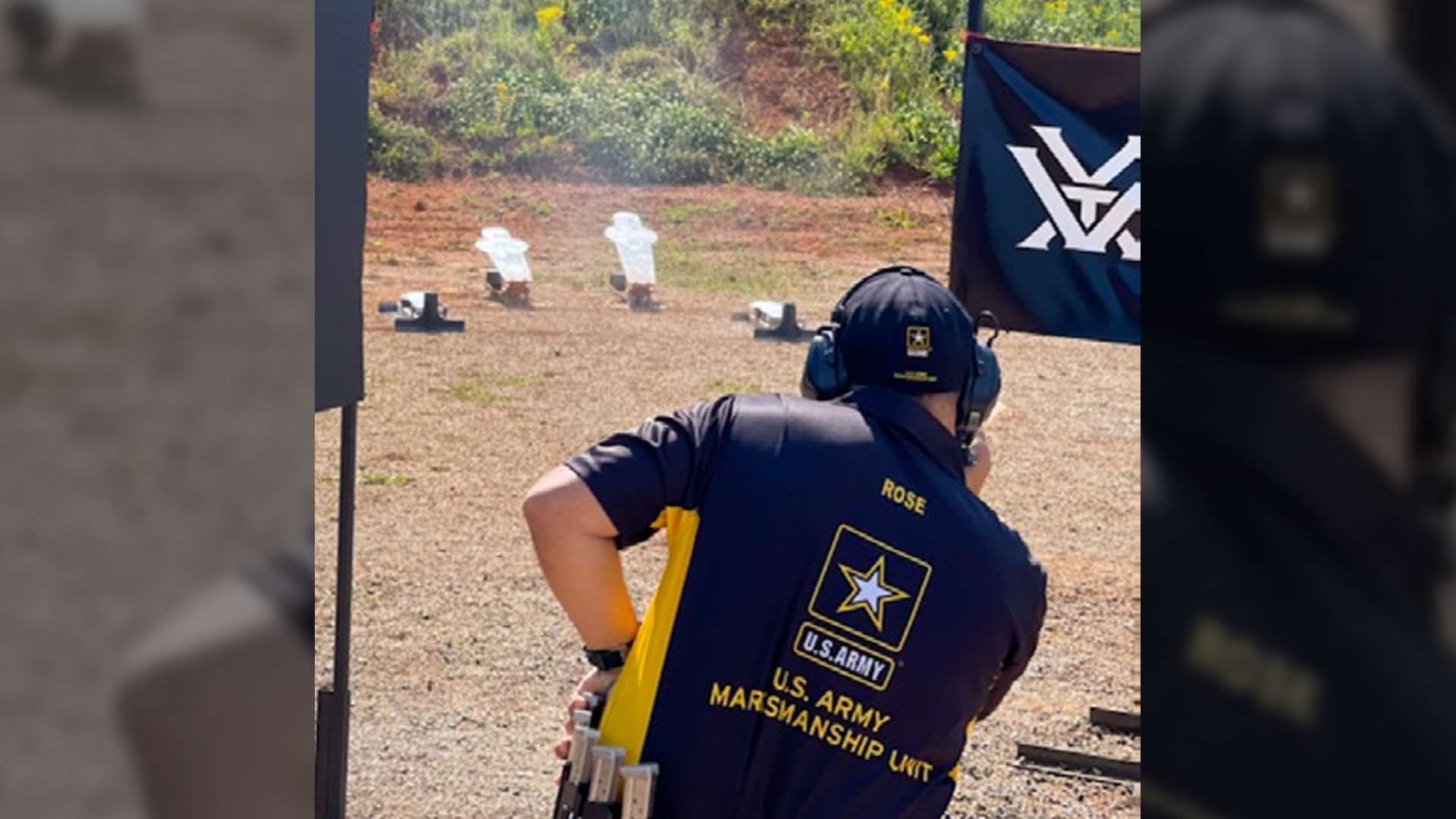
Where were you when 9/11 happened?
The morning of, I was at the 101st Airborne Division. My battalion was on one-hour recall, we were ready to go anywhere in the world within 18 hours. We were returning from working out when we heard on the radio that a plane had flown into a tower, and we assumed it was a small aircraft, similar to what happened to the Empire State Building when it was hit before. So we all ate breakfast together that day in the chow hall. We watched as the second plane hit live, and my squad leader looked up and said, “We're going to war.” And as soon as he said it, I looked across the battalion area, and people were sprinting to the offices.
They started handing out weapons, went into lockdown, and it was like a movie. The base was 100 percent locked down, with razor wire around the parking lot. I spent that first night behind a 50-caliber machine gun, protecting a family housing area on base. I remember looking up at the night sky, and for the first time in my life, not seeing a single passenger plane in the air. The only thing in the sky that night was the Apache helicopters that were stationed at Fort Campbell.
When did you deploy?
After the attacks, it took a while to figure out what was going on. By the time units started getting deployed, my battalion had come off of recall. I missed the first deployment to Afghanistan. Several months later, I was in the initial invasion of Iraq with the 101st Airborne Division. It was a once in a career—maybe a lifetime—opportunity. After the attacks, the military changed overnight. Everything was serious; everything was about deploying or training to deploy.
So how did you find competitive shooting?
I deployed in and out of Iraq and Afghanistan for more than years. During that time, I was medevac’d twice. The first time I was hit, in 2006, was pretty significant. It was Mother’s Day. It took me about a year and a half to recover. I was hit again three years later in Afghanistan, also on Mother’s Day. After I got hurt the second time, I had to look at what I was doing in my life. My military career was really kind of in jeopardy because I had so many injuries. They were apprehensive about a lot of things. I was wondering if I was going to finish my career. I had spent 10 years honing and developing these extraordinary skills that I can't use anywhere else in life. So I thought, I'm going to do some competition shooting. I've always wanted to, and it's better than just standing on a flat range and punching holes in a piece of paper.
I went in with a bunch of occupational bias, right? I thought to myself, I carry a gun for a living, I know what I'm doing. Sound familiar? I think most military and law enforcement can relate. But most people don’t realize that just because they carry a gun for a living doesn't mean they’re necessarily good with it. So I got last place in the first match I ever went to. It was an indoor IDPA match, and I had accumulated more penalty time than my raw time. I think most people in that instance get their egos hurt a little bit, and they don't come back. But I was determined to get better.
I went back, and the second time it happened, I started asking other shooters how they were beating me so bad. They really opened my eyes to how and what to get better at. That was my first experience with how the shooting community bends over backward to help you out. If someone forgets their gear or doesn’t have enough ammo, I’ve seen people share everything they had to ensure someone finished the match.
When did you begin shooting major matches?
In 2013, I decided that shooting would be something I wanted to invest time and effort into. And, that year, many things changed for me. I started shooting major matches, and that's when I learned about the U.S. Army Marksmanship Unit (AMU). Once I saw them shoot and learned about the program, I told myself, “I am going to be in the AMU.”
Can you share the experience of how you earned a spot on the AMU and how you kept that spot?
I applied to be on the AMU immediately, but I wasn’t good enough as a shooter to make the team. I kept telling my boss that I wanted to go to the AMU whenever he asked me where I wanted to go or do next. I worked as an airborne instructor for about a year-and-a-half, because I wanted to be stationed at Fort Benning where the AMU was, and I trained a lot during that time. I shot every match I could get to, and I was intentional about shooting every match the AMU guys were at. I wanted my name to be in the match results where their names were every time they checked a score.
My wife truly helped me make the team. It would be a random Friday afternoon when I’d get off work, and she’d help me load ammo or pack my range bag. I’d drive anywhere from one to five hours to shoot, sleep in the car, wake up, and compete. I was adamant about competing. I didn’t get a chance as a competition shooter, but they were starting up the instructor training program at the time. I interviewed, and because I was a competititive shooter and had extensive operational experience, I was a good fit for the role. At the end of the interview, I remember telling them that if they didn’t hire me now, I would keep coming back until they said yes. I was hired as only the 574th member ever since 1956. There wasn’t a single day that I ever took being there for granted; it was one of the best jobs I ever had the in Army, second only to leading men into combat. And that’s how I spent eight years as the Team Chief for the Instructor Trainer Group.
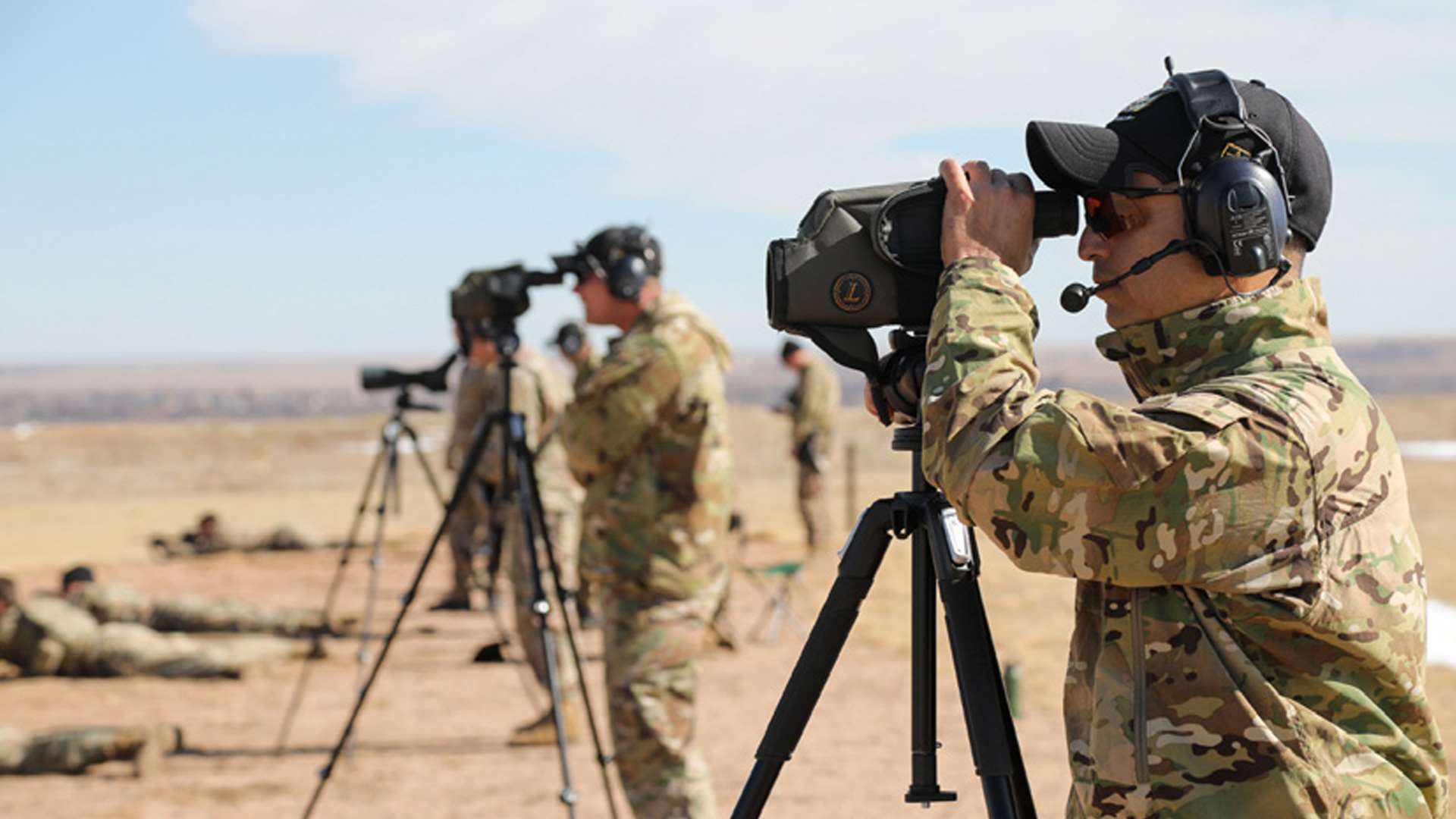
What are some lessons you learned in that role?
I was fortunate to travel the world and teach everyone, from cadets to special operations. Everyone on my team was a top performer prior to their arrivial. While this made leadership challenges difficult, the biggest lesson was that it costs nothing to be nice to people.
From a shooting standpoint, one of the greatest things I took from AMU was learning how to deal with the mental stressors of performance on command. There is a saying in the unit, “No one cares what you can do in training, only what you can do on command.” I believe that is true for competition or combat.
You mentioned your wife helped you make the team. Can you share more about that?
Time is the most valuable commodity because we can’t get it back, and we can’t buy it. Unfortunately, everyone has a day job, and time is the highest cost we sacrifice. Even now, I'm one of the few who get to shoot for a living. So my personal life and my professional life are just kind of intertwined. It's just whose shirt I am wearing that day. But most people don't get that opportunity. You have your regular job, and then at night, you do what you can to improve.
When I was starting out, my wife spent hours using this old Redding trimmer to trim brass because we didn’t have a super-fancy Dillon one. She would weigh the powder for each round and load everything on a single-stage press. I guarantee that I won the Alaskan State 3-Gun Championship because she reloaded every rifle round for me during that whole process. You try so hard to find ways to make it up to your spouse, but honestly, those are just significant debts that you can never make up for. She has made a lot of sacrifices for me to pursue my dream.
You’ve shot other shooting disciplines in your career. Can you share what you’ve shot?
I started out shooting 3-Gun. That’s the majority of what I shot up in Alaska. I shot a lot of USPSA when I moved down to Alabama, and I still shoot a lot of USPSA. While I love those sports, I found that I also really enjoy Steel Challenge. I have been very fortunate to win several State Championships, Steel Master Titles and make GM all shooting Steel Challenge.
I shot USPSA Nationals two or three times in a row. I was able to place somewhere in the mid to high twenties. Which was good; I was happy about that. Then I shot Steel Nationals and got ninth and 11th back to back. I found something about Steel that just plays to my strengths, and I really enjoy it.
But my absolute favorite shooting sport is ProAm. All falling steel style of match set on a par time is just a lot of fun. Hands down, it is my favorite. It's fun to watch. It is fun to shoot. I love everything about it.
When I’m not shooting those sports, I enjoy shooting GSSF with my friends. This year, I have some IDPA majors planned in addition to the USPSA majors I usually attend.
What do you think competitive shooters can learn by shooting different shooting sports disciplines? And why do you think it’s good to be a well-rounded shooter?
For starters, holistically, it's always good to shoot outside of your comfort zone because it will help build you as a shooter. When I was in the AMU, I trained in bullseye competition, probably the first shooting sport I'd shot that I wasn't good at. Regardless of how hard I tried, I did not improve without proper instruction and work. It was very challenging. So shooting outside your comfort zone makes you better because one applies to the other. I thought I knew what trigger control was until I tried bullseye. But I was able to take those skills I learned and translate them over to other sports well.
In USPSA, everyone says that Open division is an equipment race, but I disagree. Open is the purest form of shooting because you don't have the distractors of excessive recoil, you don't have to reload as much or align sights on three different focal planes. You just have the dot; I mean, it's simplified shooting. It's just down to who can shoot faster and better, and what Open taught me is that I could see more quickly and process information faster. And that was super important. After that, I went to another division and tried Single Stack Nationals. I shot that at least twice, and I loved it. I loved it because it was difficult. It's a lot of recoil. You always have to feed the gun. It's always out of ammunition. But I was able to take how fast I could process information from Open and apply that to Single Stack, and I found some success.
There's a lot of value in shooting multiple divisions and multiple disciplines, because there's a lot that one can help the other with.
There’s a lot of ego in shooting sports. Can you speak about how egos can get in the way of growing as a shooter?
You have to earn every shot, period, end of statement. And I've seen this over and over and over again. Ego is not your amigo. You will crash and burn. Ask me how I know. It happens to everybody. You have to be confident in your abilities but not cocky. If I’m doing a man-on-man shoot-off against Daniel Horner, and I think the world of Dan, and I know how talented and capable he is, I'm telling you, when I’m shooting against him, I believe in my heart I can beat him. Everybody is beatable, but confidence aside, you have to be a lifelong student of the gun.
What value is there in taking a class and learning from others?
If you wanted to become a better shooter and had enough time and resources, you would learn most of the things you needed to know. But by taking a class, you're shortening that learning curve, in some cases drastically, because if you're going to improve, you have to have the correct information first. The right information tells you what you need to work on, after that it's all about your work ethic.
The other thing that people don't get about training hard to be a competitive shooter is that they don't understand the grind. They have to fall in love with the process. And I think that's what most people don't realize because everybody will get motivated and go hard out of the gate. Whether out of the gate is a couple of days, months or whatever. They eventually burn out and move on to another hobby because shooting is challenging.
When I would get frustrated with something I couldn't do, I would dare myself to fail one hundred times. It's my one hundred time rule. If I feel like I couldn't shoot this classifier, or if I couldn't do a course of fire in whatever time or whatever it was, I’d dare myself to fail at it one hundred times. And I don't think I've reached a hundred for anything. You just have to have that mentality to push yourself and get the work done. You have to be very comfortable with failure. You have to accept that you have to put yourself out there in front of everybody, and that there is a risk of embarrassment. There's a chance of losing some of that ego that you have. There are all kinds of risks that you can take, but you will not get to where you want to go without accepting failure as part of the process. And you have to fall in love with the process, not the end result.
Any final thoughts you have?
You have to grind if you want to improve. I mean, that's it. That's what it comes down to. I always say that shooting saved my life. It physically saved my life overseas because I could shoot well, but it also gave me purpose and something I could strive for. Firearms brought me a family that I didn't have. I never would have thought that I would be where I am today. Any success that I have had has been the result of two things, incredibly hard work and the quality of the people that took their time to invest in me. My success is their success.
Article from the March/April 2023 issue of USPSA’s magazine.





